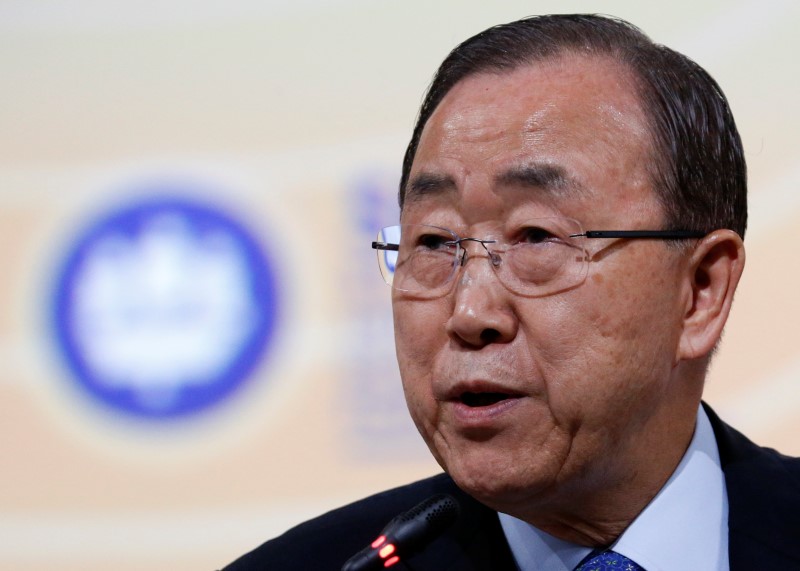By Michelle Nichols
UNITED NATIONS (Reuters) - The United States and Russia both criticized United Nations Secretary-General Ban Ki-moon on Monday for overstepping his mandate in a report on the implementation of a Security Council resolution backing a nuclear deal between Iran and world powers.
Most U.N. sanctions on Iran were lifted in January when the U.N. nuclear watchdog confirmed that Tehran fulfilled commitments under its nuclear deal with Britain, France, Germany, China, Russia and the United States. But Iran is still subject to a U.N. arms embargo and other restrictions.
U.N. political affairs chief Jeffrey Feltman briefed the 15-member Security Council on Monday on Ban's first bi-annual report on the implementation of the remaining sanctions and restrictions on Iran.
"The United States disagrees strongly with elements of this report, including that its content goes beyond the appropriate scope. We understand that Iran also disagrees strongly with parts of the report," U.S. Ambassador to the United Nations, Samantha Power, told the council.
Power said "while some have argued that to be balanced, the report should give Iran a chance to express complaints about sanctions relief under the deal," the Security Council did not mandate Ban to report on such issues.
Ban's report said Iran complained that it had yet to fully benefit from the lifting of sanctions, raising concerns about U.S. travel restrictions and the confiscation of Iranian Central Bank assets under a U.S. court order.
Russian U.N. Ambassador Vitaly Churkin said the report contained factual errors and headings in the report referring to 'restrictions' on Iranian ballistic missile activities "simply don't coincide with the subject of the report."
"Some of the provisions of the Secretary-General's report have no relation to his mandate, nor to the terms of reference of (the U.N.) resolution or the (nuclear deal)," Churkin said.
Under the U.N. resolution, Iran is "called upon" to refrain from work on ballistic missiles designed to deliver nuclear weapons for up to eight years. Key powers agree that request is not legally binding, but Western nations view the language as a ban and say there is a political obligation on Iran to comply.

Ban's report said ballistic missile launches by Iran in March were "not consistent with the constructive spirit" of the nuclear deal, but it is up to the United Nations Security Council to decide if they violated a resolution.